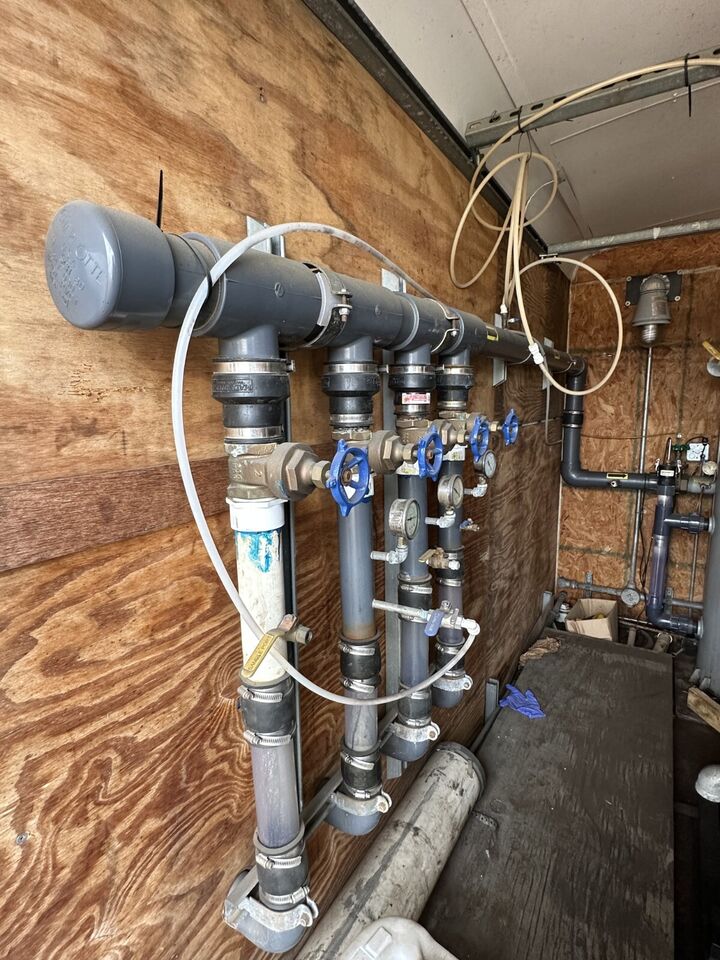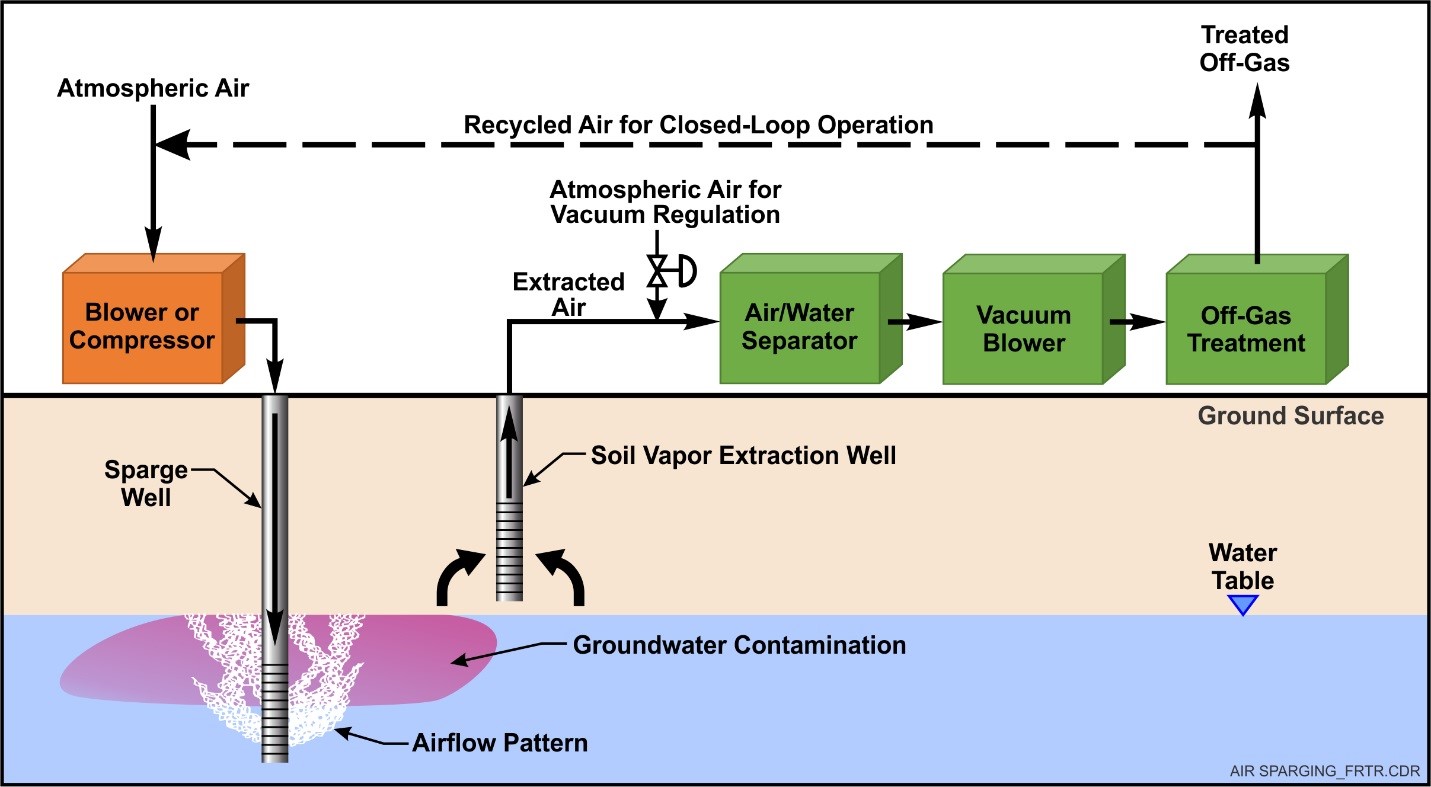Home » Top Air Sparging Services in California for Environmental Cleanup
What is Air Sparging
Air sparging is an environmental technology used to remove volatile organic compounds (VOCs) from contaminated groundwater and soil. VOCs are a class of chemicals that easily evaporate at room temperature. Some common VOCs include gasoline, benzene, and trichloroethylene (TCE).
Air sparging works by injecting air underground through wells. The air bubbles through the groundwater, which causes the VOCs to evaporate and move into the unsaturated zone (the area above the water table). Once in the unsaturated zone, the VOCs can be extracted using a soil vapor extraction (SVE) system. SVE systems use a vacuum to remove the VOCs from the soil and then treat them before they are released into the atmosphere.
Air sparging is a relatively inexpensive and effective way to remove VOCs from contaminated groundwater and soil. It is often used in conjunction with SVE to create a complete remediation system. Here are some of the advantages and disadvantages of air sparging:
Benefits of Air Sparging
Air sparging offers several advantages over traditional soil and groundwater remediation methods:
Air sparging is a relatively inexpensive solution compared to other remediation techniques.
Air sparging is a relatively inexpensive solution compared to other remediation techniques.
Air sparging can be employed in various geologic settings, making it a adaptable remediation strategy.
Air sparging creates minimal disruption to the site, allowing for continued operation during the remediation process.

Contact Us Today for a Free Quote!
If you are dealing with VOC-contaminated soil or groundwater, air sparging may be the ideal solution for your site. Contact DEFS today to discuss your specific needs to see how our air sparging services can effectively remediate your contaminated site.

